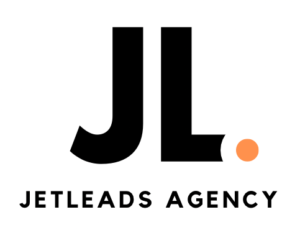Link building is a core element of any successful SEO campaign—but in 2025, it’s no longer a numbers game. With Google’s algorithms smarter than ever, outdated or manipulative tactics can quickly lead to penalties or ranking drops.
Fortunately, there are still safe, effective and ethical link building techniques that continue to deliver results. Whether you’re an SEO freelancer, agency owner, or consultant, understanding which strategies still work—and how to execute them properly—is essential.
This guide explores seven proven, white-hat link building methods that help boost your domain authority, improve rankings, and keep your site on the right side of search engine guidelines.
1. Digital PR Campaigns for Authoritative Links
Digital PR remains one of the most effective and scalable link building strategies available. By creating newsworthy stories or data-led content and pitching them to journalists or bloggers, you can earn links from high-authority media outlets.
Successful digital PR campaigns include:
- Surveys with industry-specific insights
- Expert commentary on trending topics
- Original research or reports
- Reactive PR (e.g., jumping on breaking news with expert quotes)
The benefit? You’re gaining genuine editorial backlinks that Google recognises as trustworthy and earned—not bought or spammed. These links also drive referral traffic and enhance brand visibility.
Looking to integrate digital PR into your backlink strategy? Learn how Jet Leads delivers strategic, high-quality link building services with proven results.
2. Guest Posting on Reputable Websites
Guest posting—when done correctly—is still a legitimate way to build links and position yourself as an authority in your niche. The key is focusing on quality over quantity.
Here’s how to keep guest posting ethical:
- Only submit to relevant, niche-specific websites
- Avoid paying for posts on spammy or unrelated domains
- Provide unique, well-written articles with real value
- Include contextual links within the body, not just the bio
Avoid guest post networks or PBNs (Private Blog Networks), as these often fall outside Google’s guidelines. Instead, focus on genuine outreach and collaboration with real editorial teams.
Guest blogging also opens doors to long-term partnerships and ongoing link opportunities.
3. Niche Edits (Done the Right Way)
Niche edits, also known as contextual link insertions, involve adding your link to an existing piece of content on another website. While this method has been abused in the past, when applied correctly, it remains a valid white-hat technique.
To keep niche edits risk-free:
- Target high-quality, relevant content that ranks
- Reach out directly to the site owner with a value proposition
- Suggest edits that improve or update the article—not just add your link
- Avoid services that offer bulk “link placements” with no editorial control
Niche edits are great for building links from aged content that already has traffic and authority. They’re also less time-consuming than guest posts, making them ideal for SEOs managing multiple clients.
To develop a complete strategy beyond just links, explore our SEO consulting services for tailored growth plans.
4. Unlinked Brand Mentions and Attribution Requests
If your brand has ever been mentioned online without a backlink, you’re sitting on a low-effort link building opportunity. This tactic involves finding unlinked brand mentions and politely requesting the website owner to add a hyperlink.
How to do it:
- Use tools like Ahrefs Alerts or Google Alerts to track new brand mentions
- Search for your company name, product, or CEO online
- Reach out with a friendly message thanking them and asking for attribution
This approach works best when the mention is positive, helpful, or includes a quote or data from your business.
These links are natural, easy to acquire, and often appear on relevant industry blogs or local news sites.
5. Resource Page Outreach
Resource pages are curated collections of useful links, usually on educational or industry-related websites. These pages are often open to suggestions—making them a great target for ethical link building.
Steps to use this technique:
- Search for pages using terms like “helpful resources”, “useful links”, or “recommended tools” in your niche.
- Evaluate the quality and relevance of the site.
- Reach out with a brief explanation of why your content or tool deserves inclusion.
To succeed, your content must genuinely be helpful and non-promotional. This strategy works particularly well for guides, toolkits, templates, or educational blogs.
6. Local Link Building for Businesses and Clients
For agencies or freelancers managing local SEO campaigns, local link building is essential. These links don’t just improve organic rankings—they also increase visibility in Google Maps and local packs.
Tactics include:
- Submitting to relevant local directories (not spammy citation farms)
- Sponsoring local events, charities, or sports teams
- Earning links from local news or blogs
- Partnering with nearby businesses for cross-promotional features
You can also reach out to your local Chamber of Commerce, schools, or non-profits for link opportunities. These are typically high-trust domains and help establish your client’s legitimacy in the area.
7. Create Link-Worthy, Evergreen Content Assets
One of the most sustainable link building strategies is to create content that naturally attracts links over time. Also known as “linkable assets”, these include:
- Industry statistics or trend reports
- In-depth how-to guides
- Free tools or calculators
- Checklists, templates, or frameworks
The aim is to provide so much value that people link to your content without being asked. These assets can continue attracting links months or even years after publishing.
To amplify visibility, promote these assets via email campaigns, social media, and blogger outreach.
Ready to turn your ideas into valuable links? Contact us for tailored guidance via our contact page.
Link Building: What to Avoid in 2025
While it’s tempting to chase quick wins, here are some outdated or risky tactics that no longer work:
- Buying links from link farms or forums
- Using exact-match anchor text excessively
- Submitting to irrelevant directories
- Comment spamming on blogs and forums
- Automated guest post software or networks
Google’s link spam updates have cracked down hard on low-quality link schemes. It’s safer—and smarter—to build your strategy on relevance, value, and manual outreach.
Final Thoughts: Ethical Link Building That Stands the Test of Time
In 2025, the best links are earned, not bought. They come from quality content, authentic outreach, and relationships—not shortcuts. Ethical link building is no longer just an ideal—it’s the only approach that delivers long-term SEO success.
To recap, here are 7 link building strategies that still work without risking penalties:
- Digital PR campaigns
- Guest posts on reputable sites
- Contextual niche edits
- Unlinked brand mention outreach
- Resource page inclusion
- Local link building
- Linkable evergreen assets
When executed properly, these methods improve domain authority, increase organic visibility, and keep your website firmly within search engine guidelines.
FAQs
What is ethical link building?
Ethical link building involves acquiring backlinks through honest, transparent, and Google-compliant strategies—like digital PR, guest posting, and content-driven outreach.
Are niche edits safe to use in 2025?
Yes, when done manually and with editorial consent. Avoid paid placements on irrelevant or spammy sites. Focus on relevant content updates and proper context.
Does guest posting still work for SEO?
Absolutely. As long as the site is reputable and the content provides real value, guest posting remains a strong white-hat tactic.
How do I get backlinks without paying?
You can earn free backlinks through digital PR, unlinked brand mentions, resource page suggestions, and by publishing high-value, linkable content.
What types of links should I avoid?
Avoid spammy, low-quality, or irrelevant links—especially those bought in bulk. These can trigger Google penalties and harm your site’s authority.

